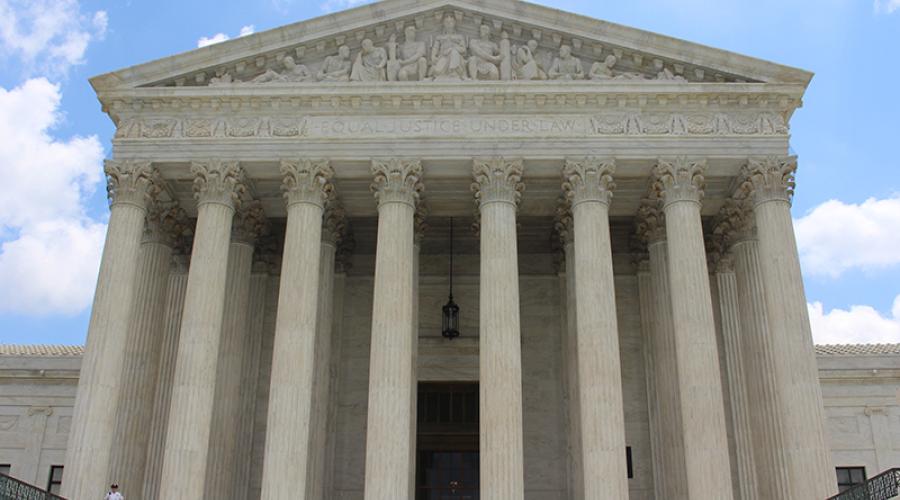
Janus Aftermath
In this opinion piece, Professors Harry Katz and Alexander Colvin discuss implications of the U.S. Supreme Court’s decision in the Janus case.
Are Unions ‘On the Ropes’ after the Supreme Court’s Janus Decision?
Has the Supreme Court thrown a knockout punch in the long-running battle between conservative political groups and the union movement?
In their recently announced [5-4] Janus decision, the U.S. Supreme Court struck down the collection by public employee unions of agency fees charged to non-members in union-represented workplaces, even though these non members gain benefits of union collective bargaining, workplace grievance procedures, and other forms of representation. This ruling has the potential to starve unions of the funds needed to represent workers.
The Supreme Court’s decision reverses its own longstanding precedent from the Abood case that had provided a key foundation for public sector labor relations. Its reasoning for doing so is unconvincing and shows little appreciation of the realities of union representation and collective bargaining.
While the court’s majority opinion argued that these so-called agency fees violated non-members’ freedom of speech, the justices ignored the fact that such fees already were limited only to unions’ representation services and were not allowed to cover their political activities.
The majority also failed to grapple with the fact that without agency fees a “free rider” problem is created whereby represented workers can unfairly avoid the costs of union representation while gaining the benefits of that representation. Under current labor law, unions are obligated to fully and fairly represent all workers covered by a union contract – the so-called duty of fair representation. A wage increase bargained by the union goes to all workers under the collective bargaining agreement, whether or not they are union members. In grievance procedures that protect employees against being disciplined or fired unfairly, the union must represent even those workers that are not members. Agency fees are an appropriate means to compensate unions for the representation they are obligated to provide non-members. Unions rightly fear that making these fees optional will dissuade not only those unsympathetic to unionism from paying them, but also previously loyal members looking for a way to save money.
Although public sector union leaders are understandably fearful massive declines in union membership will follow, we’re not convinced that necessarily will be the case. Union members are often motivated to pay dues to a union for reasons beyond a simple calculation of the narrow costs and benefits of doing so. Research shows that a sizeable majority of union members think highly of the representation they receive from their union and individuals often support unions for a complex array of reasons.
Whether public sector union membership will decline post-Janus also will depend on whether unions find ways to mobilize their members and demonstrate all the helpful things they do for workers. Some unions already have begun efforts to better explain how they improve workers lives. They have also taken steps in anticipation of a negative Janus decision to trim their staffs of paid union officers and instead hand over to members more direct responsibility for union activities like bargaining and grievance handling. Ironically, the Janus decision could spur a healthy revitalization of unions and make them even more democratic.
Union critics have long claimed that unions are the cause of conflict at the workplace and in a variety of ways impede economic performance. Here again the facts contradict the conventional wisdom. For one thing, as we’ve seen in recent wildcat strikes led by ordinary teachers in West Virginia, Oklahoma, Arizona and elsewhere, unions themselves are not the cause of labor-management conflict. The roots of conflict lie in worker anger at unfair conditions in the workplace. Labor history is full of illustrations of the broad range of ways employees find through mass actions of one sort or another to air their anger, whether they are represented by a union or not. Perhaps one product of the Janus decision will be more frequent wildcat action given that the formal channels for dispute resolution that unions had provided become less available.
Another looming question is whether the court will through subsequent cases extend its ban of agency fees to private sector unions. It is not clear that the logic the court used to outlaw such fees in the public sector does not also apply in the private sector. Another possible legal consequence of the Janus decision is an increase in pro-union action in states where voters and legislators are more sympathetic than the court to unions, as it has in New York. Would an expansion in the already significant variation that prevails in worker and union rights and worker representation across states be a healthy development?
The point is that the Supreme Court’s Janus decision is not only unfair, it also is likely to have complex consequences that will not bring more orderly conflict resolution to America’s workplaces.
About the authors: Harry Katz is the Jack Sheinkman Professor of Collective Bargaining and Director of the Scheinman Institute on Conflict Resolution at Cornell University’s ILR School. Alexander Colvin is the Martin F. Scheinman Professor of Conflict Resolution at Cornell University’s ILR School.